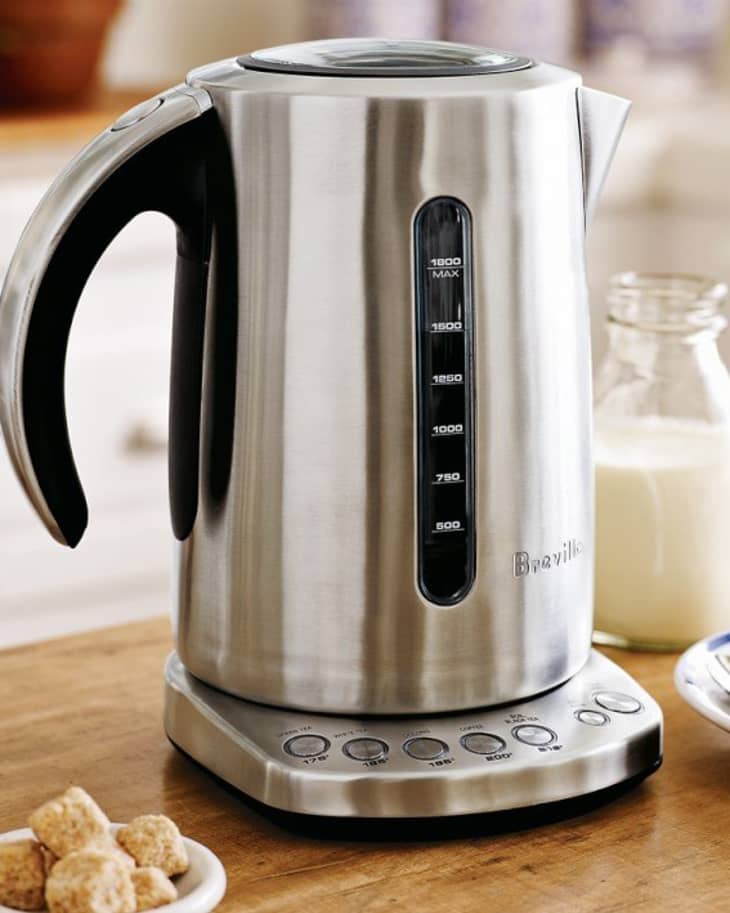Is an Electric Tea Kettle Really Better?
In a post we published earlier this month about must-haves from kitchens around the world, I noticed quite a few comments about electric tea kettles and whether or not they were really better than a stovetop kettle. As someone who has exactly four electric kitchen appliances — a blender, a stand mixer, a coffee grinder, and a brand-new food processor, which I’m still on the fence about — I tend to favor anything that doesn’t require a plug. My kelly green Le Creuset kettle sits on my stovetop, ready to go at any minute. I use it to make French press coffee most mornings and tea at night (when I’m being virtuous and not having a glass of red wine), and to fill up my hot water bottle (yes, I have one).
That said, there are good arguments to be made for an electric tea kettle. Here are five reasons for going to the electric side.
1. An electric tea kettle is faster.
We didn’t conduct any scientific experiments for the sake of this article, but it’s safe to say that an electric tea kettle will boil water faster than your stovetop kettle. (Note: Seth Stevenson, writing for Slate, says an electric kettle will get the job done in about half the time.)
2. You don’t have to worry about exploding your tea kettle.
Raise your hand if you’ve ever blown up a stovetop tea kettle. Now raise your hand if you’ve ever managed to explode your electric tea kettle. Enough said.
3. Related: You probably won’t burn your hand.
Stovetop tea kettles get hot, and even if they have handles that are meant to be heat-resistant, that’s not always the case.
4. It doesn’t whistle.
Some people (me) may find screaming kettles charming, but it seems many of you come down on the other side of the piercing shrieks of a stovetop kettle. Most electric tea kettles will just automatically shut off when the water boils — no screaming.
5. It’s more precise.
If you’re going to get really geeky about making a cup of coffee or tea, temperature is key. If you’re making French press, for example, you want the temperature to be 195°F, which is less than boiling. Green tea likes a slightly lower temperature — about 160°F to 170°F for Japanese green teas and spring teas, and 170°F to 180°F for Chinese green teas. While temperature is largely guesswork with stovetop kettles (personally, I let mine boil, then wait a minute or two for it to cool just slightly), many electric kettles allow you to heat your water to a precise temperature, guaranteeing a perfect cup every time.
More on Electric Kettles
- Electric Kettles: Should You Buy One?
- Faith’s Favorite Hot Water Kettle
My Essential Appliance: Chef’s Choice Electric Kettle
